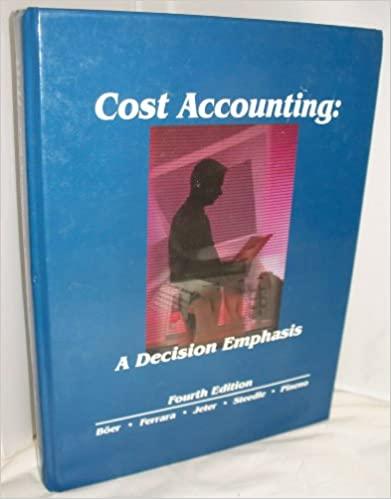The Caplow Company is a multi-divisional company. Its managers have been delegated full profit responsibility and complete
Question:
The Caplow Company is a multi-divisional company. Its managers have been delegated full profit responsibility and complete autonomy to accept or reject transfers from other divisions.
Division A produces a subassembly with a ready competitive market. This subassembly is currently used by Division B for a final product which is sold outside at $1,200 per unit.
Division A charges Division B the market price of $700 per unit for the subassembly.
Variable costs are $520 per unit and $600 per unit for Divisions A and B, respectively.
The manager of Division B feels that Division A should transfer the subassembly at a lower price than market because at market price Division B is unable to make profit.
Required:
a. Assuming transfers are made at the market price, compute Division B's profit contribution per unit and the total profit contribution per unit for the company.
b. Assume that Division A can sell all its production in the open market. Should Division A transfer goods to Division B? If so, at what price?
c. Assume Division A can sell only 500 units at $700 per unit (out of the 1,000 which it can produce every month)in the open market and that a 20 percent reduction in price is necessary to sell full capacity. Should transfers be made to Division B? If so, how many units should be transferred and at what price? Submit a schedule showing comparisons of profit contribution under the different available alternatives to support your decision.
(SMA adapted)
LO.1
Step by Step Answer:

Cost Accounting A Decision Emphasis
ISBN: 9780873939126
4th Edition
Authors: Germain B. Boer, William L. Ferrara, Debra C. Jeter





